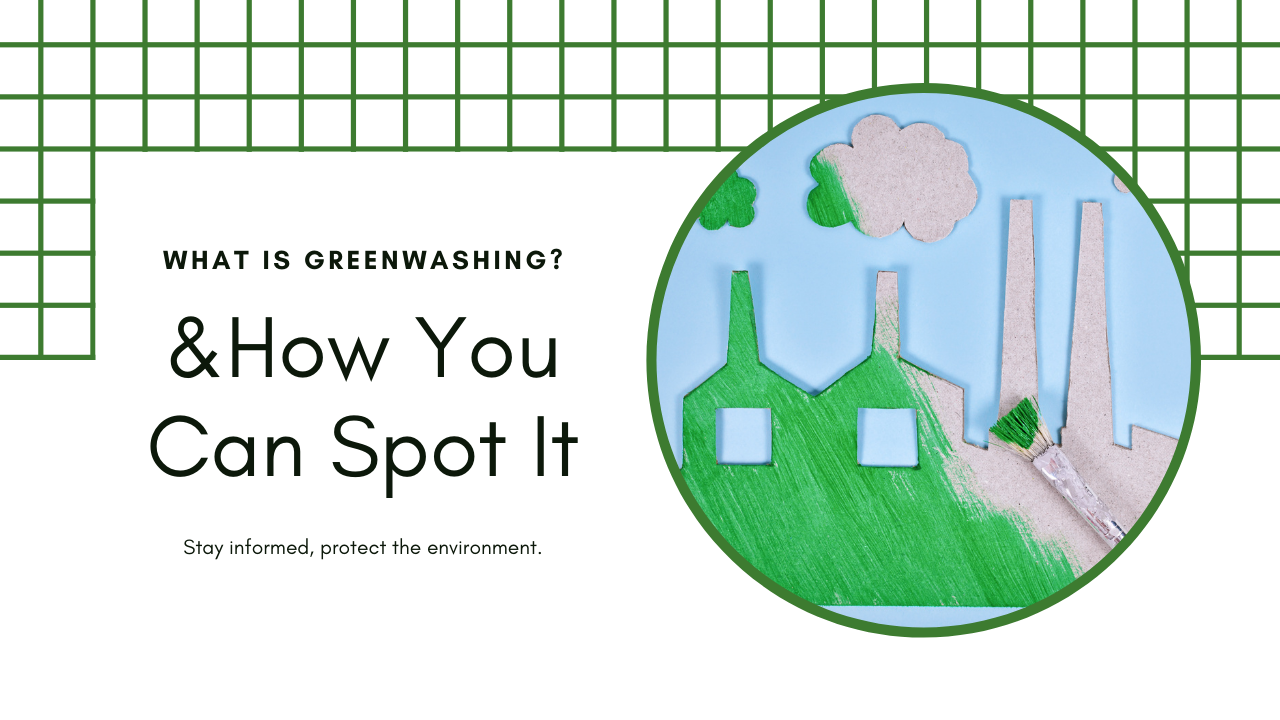by Amina Mukaty, 2024 Spring Programs Intern
What is Greenwashing?
Due to the global efforts towards mitigating the impacts of climate change and embracing sustainability, various eco-friendly trends have emerged across several industries. Many brands have latched on to the sustainability movement to market their products to environmentally-conscious consumers.
The term “greenwashing” comes into play when companies falsely preach sustainability and mislead their buyers. This generates a distorted perception of “environmentalism” around their brand – when in reality, they do not truly practice what they preach.
Greenwashing is not only an unethical and deceptive practice but its proliferation also hinders genuine efforts towards sustainability. It makes it increasingly challenging for consumers to make well-informed and environmentally sound decisions about the products they choose to buy and diverts attention from the companies that are actually sustainable.
Examples of Greenwashing
H&M
H&M, a global fashion brand, was hit with multiple lawsuits for “deceptively” capitalizing off of eco-minded customers with their “Conscious” line. The green background along with the use of language in the “Conscious” label can be falsely perceived as adjacent to “sustainable” when the material is made from polyester and synthetic materials that are harmful to the environment.
Volkswagen
Volkswagen, a German automobile manufacturer, was called out by the EPA for manipulating emission tests through a “defeat device” in their cars; a software in diesel engines that could cheat tests by yielding greener results when they detected that they were being tested. Volkswagen was greenwashing through its “low emissions” and “eco-friendly” marketing campaigns.
Don’t be Fooled by Greenwashing Tactics
Keep an eye out for:
- Language: Be wary of buzzwords, and vague, unclear language with nothing implied, like H&M’s “Conscious.”
- Suggestive “Green” Imagery: The use of the color green and pictures of nature, animals, and plants is a tactic to trick the perception of products as more “environmentally friendly.”
- Lack of Proof: No valid certifications to back up claims.
- Irrelevance: Claims that are true but irrelevant to environmental impact. For example, an aerosol spray that is labeled as “CFC-Free,” when CFC has been banned since 1978.
Be sure to check out the FTC’s Green Guides regarding environmentally friendly products.
Sources:
https://www.nrdc.org/stories/what-greenwashing
https://thesustainableagency.com/blog/greenwashing-examples/
https://fashionunited.uk/news/fashion/h-m-sued-for-greenwashing-claims-again/2022111466226
https://paulaparisotto.com/blogs/get-corky/greenwashing-when-going-green-will-make-you-see-red
https://www.fastcompany.com/1714334/fiji-water-sued-over-carbon-credit-greenwashing
https://www.ecowatch.com/greenwashing-guide-2655331542.html
https://www.copythatco.com/blog-and-free-tips/what-is-greenwashing-avoid-misleading-marketing
https://www.un.org/en/climatechange/science/climate-issues/greenwashing/
https://www.ecowatch.com/vw-were-sorry-we-got-caught-1882129392.html





